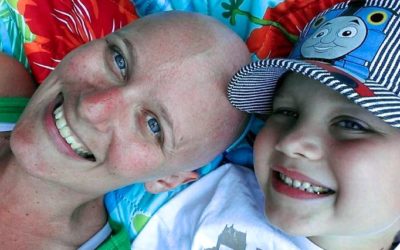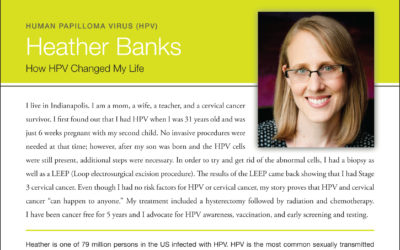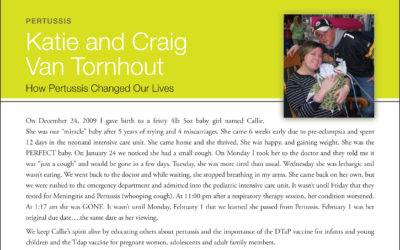Ashley Goeller

I was 18 years old and a freshman at Indiana University. I went to the doctor because I had flu-like symptoms. About 12 hours later, a rash developed and I was transferred to Methodist Hospital in Indianapolis where I was given a medication called Xigris within 20 minutes of arrival.
My parents were told that I had Meningococcal Meningitis and that I had a 20% chance of survival and to prepare for the worst.
I was in the hospital for 3 months fighting for my life. The doctors prescribed antibiotics to fight the infection, but the disease had progressed significantly already. I had kidney failure, my heart stopped twice, I had both feet amputated, over 20 surgeries, 3 fingers amputated, and 40 percent of my body has skin grafting and scars.
Miraculously, I survived and I am a spokesperson for the National Meningitis Association, and I am able to educate others about Meningitis and the importance of receiving the vaccine to prevent this potentially fatal and dangerous infection.
Ashley is not alone. There are about 1500 cases of Meningococcal Meningitis in the US each year, and 1 out of 9 persons die. Adolescents and young adults are at a higher risk to contract the disease. Up to 20% of survivors have long-term, serious disabilities including brain damage, limb amputations, organ damage, and hearing loss.
Meningococcal Meningitis is a rare, but deadly bacterial infection that is spread through respiratory droplets (coughing, sneezing, and kissing). It is hard to diagnose, and if left untreated, can progress rapidly.
Fortunately, most cases of meningitis that occur in the US can be prevented by receiving a safe and effective vaccine. The vaccine is recommended for all 11 and 12-year-olds, with a booster dose at age 16. All young people should receive the vaccine before entering college. Others with high-risk conditions should also receive the vaccine.






